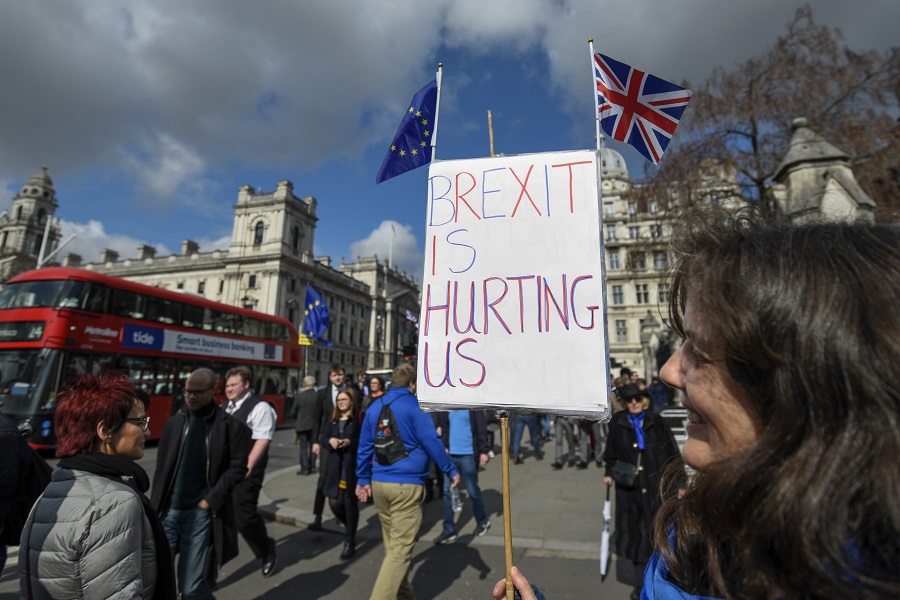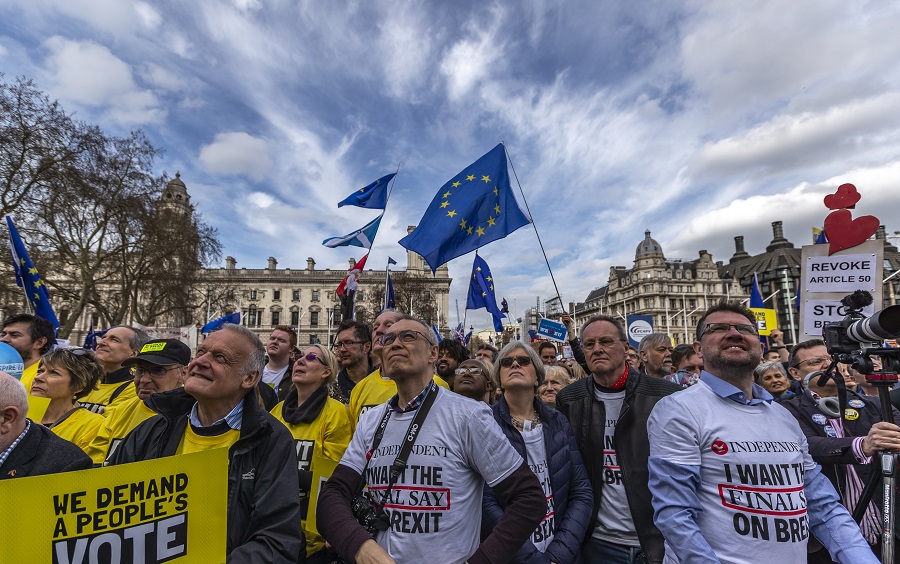
An anti-Brexit protester holds a placard outside the Houses of Parliament in London, Britain, on March 19, 2019.(Xinhua/Stephen Chung)
As Brexit remains central to British economic outlook, the pound will be sensitive to future developments and no-deal Brexit concerns will continue to drag the currency, analysts predict.
LONDON, Aug. 1 (Xinhua) -- British pound fell to a 30-month low against the U.S. dollar on Thursday as a result of continued Brexit uncertainties and U.S. interest rate cut for the first time in a decade.
The British currency was trading just below 1.210 before noon, continuing its downward trend after a brief respite on Wednesday. The pound lost 4 percent throughout July, and dropped below 1.23 against the U.S. dollar for the first time on Monday since Article 50, the mechanism which started the Brexit process, was triggered in March 2017.
The pound's latest sharp decline against the U.S. dollar is refreshing the 28-month low struck earlier in the week as markets reacted to the U.S. Federal Reserve's policy decision, according to Laura Parsons, an exchange rate analyst at TorFX, a currency broker.
U.S. Federal Reserve on Wednesday lowered interest rates for the first time since the 2008 global financial crisis, amid rising concerns over trade tensions, a slowing global economy and muted inflation pressures.

Demonstrators protest during the "Put it to the People" march in central London, Britain, on March 23, 2019.(Xinhua/Han Yan)
The Federal Open Market Committee (FOMC), the Fed's rate-setting body, trimmed the target for the federal funds rate by 25 basis points to a range of 2 percent to 2.25 percent after concluding its two-day policy meeting, in line with market expectation.
The move, in line with market expectation, is "not the beginning of a long series of rate cuts," Fed Chairman Jerome Powell said.
As Brexit remains central to British economic outlook, the pound will be sensitive to future developments and no-deal Brexit concerns will continue to drag the currency, analysts predicted.
The market is now closely watching the Bank of England's policy decisions due on later Thursday to see whether it will follow suit of other central banks to cut interest rate. It is expected that the bank will keep the 0.75 percent rate on hold, but cut economic growth forecasts.
The pound sell-off looks poised to resume later this afternoon, as the British central bank is widely expected to strike a dovish tone following its latest policy meeting, Parsons reckons.



